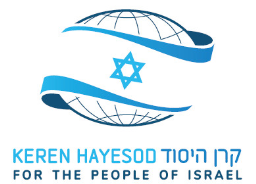How to write an impressive CV: The golden rules
Are you Olim Hdashim? Are you foreign language speakers living in Israel and looking for a job? Do you speak German, English, Russian, Arabic, Spanish, French, Italian, Korean, Japanese, Chinese or any other foreign language? This article is here to assist you on your job searching journey. You're looking for a job, you really want to work in Israel, but have you ever invested some thought about your CV? Your CV is supposed to be your representation. It's your detailed, elaborated business card. It will represent not only your professional experience and skills, but the way and form you will compose it will also indicates something about your charisma and personality.
Therefore, do not underestimate the power of your CV. Take the proper time to read this article and compose the right CV for you. It's highly recommended to use our CV wizard that will help you out with that. Here are some guidelines and pointers to help you create the best resume possible!
1. Keep it simple – don't use a too colorful font.
Choosing a font is considered to most people a rather trivial choice. But the font is everything. If the font is too small or too 'designed' it can make the reader, AKA the interviewer in your desired workplace to quit reading through it and simply move to the next candidate. You want your font to be inviting and not exhausting to read. The most useful font would be Arial and the size should be 11-12.
2. The one page rule.
It's not a myth. Keeping your enclosed details and professional experience within a one page frame will look better and will guarantee that the interviewer will not miss anything relevant about you. The font we mentioned earlier can help you out with that. If you've exceeded to more than one page, redo it and make sure you cut out all of irrelevant information. If you're applying for a senior position, for example, a CEO and your experience will exceed one page, try to keep the majority of your relevant professional experience in the first page.
3. Pay attention to details.
Your CV file allows your potential employer to examine your skills, your experience and basically your ability to be organized. If your resume will look chaotic, unorganized and lacking of basic grammatical rules, you'll probably find yourself at the outlook's recycle bin of your interviewer. Make sure there are no misspelled words, that there's enough space between the lines, go over your CV again before forwarding it onwards or preferably – have someone else that you trust take a look at it.
4. Keep all of your past roles in a chronological order.
Keep your resume regularly updated. You don't know when your next opportunity will enter your life and you want to be ready for it. That mean, that everything should be placed in a chronological order. Don't write your first job, the one from almost 15 years ago, as the first job description in your professional experience section. Put your most recent job title first, with a short description, keeping in mind that if you're applying to a variety of different jobs – the first job title, the one that is the most visible, should match the position you're applying for. If you’re the first job title the interviewer will see will be 'bartender at a night club' instead of 'VP international sales' it can cause a misunderstanding and the interviewer may not continue reading your CV. Simplify everything for whoever you're sending it to.
5. Keep the text 'fluid'.
It's important to keep the reader, the interviewer, interested. Especially in our day and age, most people will lose their focus on a text pretty easily. We recommend summarize everything, and divide the information into a few paragraphs or sections such as:
- Reaching department goals on a monthly basis
- Maintaining an ongoing relationships with customers
- Trainings to new employees
That way, you won't lose the interviewer's concentration and they won't miss a single thing.
6. Using first tense sounds wrong.
It's better to elaborate on your accomplishments without using the first tense, for example 'I used to sell…' should be converted to 'experience in selling…' remember – you're not telling a story and you're absolutely not interested in boring the interviewer who's reading your CV.
7. References (recommenders)
In Israel, it's not very common to include a list of your recommenders beforehand in your CV. For foreign language speakers, like German, Italian, Russian, Arabic, French, Spanish, Japanese, Korean, Chinese or Olim Hadashim that are also foreign language speakers it may seem vital, but please include your list of recommenders only if you were asked to do so. It is also better to let your recommenders know before forwarding their information onwards, to be on the safe side and make sure they'll be available to take the call and commend you on all of your achievements.
In conclusion, we can summarize this article with the realization that our CV has a huge impact on the recruitment process; it can either make us look professional and adept in a variety of fields or completely out of touch and unorganized. So, Olim Hadashim and foreign language speakers – now that you're applying to a job in Israel, perhaps for a position that requires knowledge in English, German, Arabic, Korean, Russian, Japanese, Chinese, Spanish, French or maybe a different foreign language, we're sure our tips have helped you out with how to write a CV and don't forget to check out our amazing CV wizard that can assist you further.
Good luck with your next job!
Are you Olim Hadashim? Looking for a job in Israel? Are you foreign language speakers like English, German, Spanish, Russian, Arabic, French, Italian, Japanese, Chinese or perhaps other foreign languages? Check out our blogs now for more tips on how to navigate in the job seeking world in Israel to find the best job for you!






